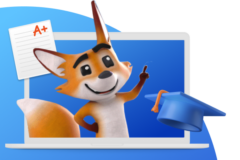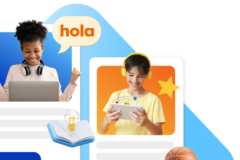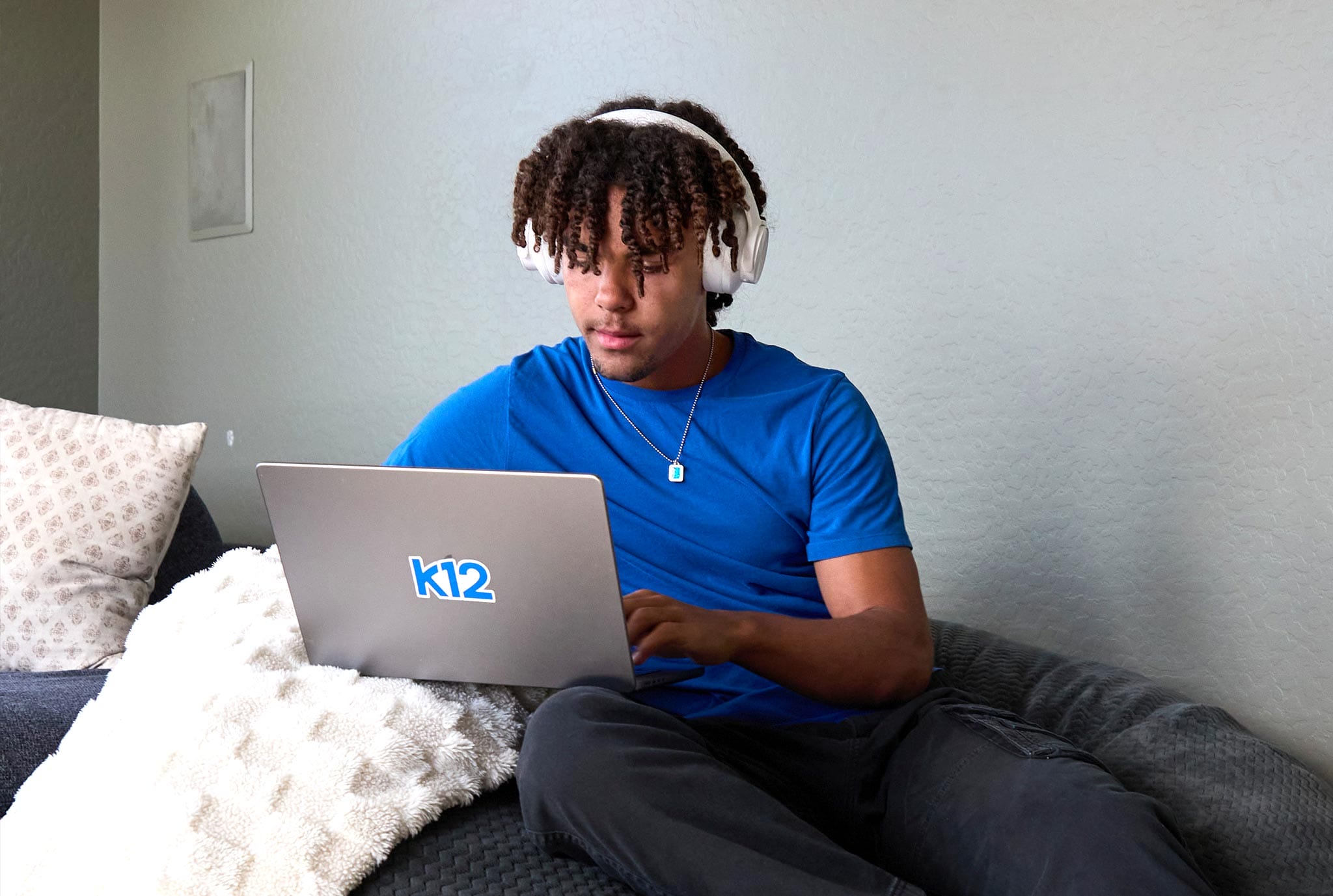School’s out, and your kids are making their summer plans! But should those plans involve—summer school?
Before your kids (or even you) groan at the idea of never-ending 7 AM drop-offs and nightly homework, rest assured that summer school is different from regular school. It’s not as heavy of a daily time commitment and (usually) doesn’t last all summer. Instead, summer school typically consists of condensed, focused courses designed to help kids catch up, get ahead, or explore topics not covered during the school year.
We’re here to help you find a summer school curriculum that will leave your kid feeling confident for the upcoming year and excited to keep learning! At K12, we offer a range of programs designed to help students prevent summer learning loss and maintain their enthusiasm for education year-round.
Why consider summer school for your child?
Between camps, volunteering, and family vacations, we know many activities compete for your kids’ summer days. So, why does summer school deserve a place in your young student’s busy schedule? There are several reasons parents choose to prioritize summer learning. A curriculum tailored to your kid’s needs can assist with:
- Maintaining Momentum: The brain is a muscle, and like any muscle, the longer you don’t use it, the weaker it gets. Summer school can help keep your child’s learning skills sharp so they start the next year feeling ready.
- Catching Up: Did your kid end the school year with some grades that were lower than anticipated? Enroll them in summer school courses for those challenging subjects so they’re ready to progress to next year’s material.
- Retaking Courses: If your kid fails a class, don’t panic. Summer school is the perfect opportunity to retake courses and put your learner back on track. Waiting until the upcoming year to retake a course can cause overwhelm, and summer programs allow them to retake a course at a relaxed pace.
- Getting Ahead: You may have an ambitious child who wants to soar past what their school offers. Advanced courses always look good on a college application, and summer school allows kids to take select classes early.
- Finding Enrichment: Want to raise a well-rounded, curious, and creative child? Consider elective or enrichment courses. The summer curriculum doesn’t have to be all about the basics.
Whether your kid has fallen behind, wants to get ahead, or wants to try something new, K12 offers diverse summer school programs for children with various goals and learning styles.
What does a typical summer school curriculum include?
If you’re going to convince your child that some of their precious summer days are better spent in the classroom than lounging around, they’ll want to know what they’re in for. So, here’s a breakdown of how summer school differs from regular school:
- Classes are condensed. The typical summer school lasts four to nine weeks (so you can promise your child they won’t lose their whole summer).
- Classes are focused. Most summer school programs help kids with subjects that need improvement. Therefore, rather than covering many subjects, a summer school program will likely focus on just one subject (or a few closely related subjects).
- School days are usually shorter. Summer school days aren’t typically from 8 AM to 3 PM like regular school days. Most last two to five hours, depending on the number of courses students take.
- Subjects range from foundational to fun. Core classes, such as reading and science, are taught, but so are subjects like sculpture and breakdancing. So, if your kid needs to work on their number skills this summer, a math curriculum is available. But if they’re just looking to learn how to do ballet or oil paint, there are courses for that, too.
At K12, our summer school curriculum for elementary students includes many of the same courses we offer during the year.
Core Subjects Covered
Summer school curriculum tends to prioritize core subjects. That’s because preventing summer learning loss and catching up are two of the top goals for summer students. It’s common to find condensed, focused summer courses in:
- Math
- Science
- Reading or English
- History
Summer school curriculum isn’t designed to balance multiple courses. Instead, it’s usually focused on one subject, allowing students to finish a course that generally takes a whole semester in a matter of weeks.
Enrichment and Elective Options
Whether your child is already thriving in core subjects or wants to round out their foundational summer school subjects with some electives, here are some entertaining and creative courses kids can take:
- Photography
- Creative writing
- Dance
- Sculpture
- World languages
- Life skills
- Painting
- Coding and robotics
- Game design
- Cooking
These courses can help nurture creativity in your children and help them develop skills they’ll use throughout their educational journey and in the real world.
Summer School Curriculum Ideas to Keep Kids Engaged
Trying to decide on the best summer school? Reading the curriculum is one place to start. However, you also want to make sure that the program is crafted to complement your child’s unique learning style. The most effective summer schools even find ways to make classes fun (after all, it’s summer, and your kid deserves a little fun)! Look for classes that engage kids with hands-on projects, outdoor exploration or experiments, and real-world lesson integration. Then, it comes down to deciding if your child is better off at an online or in-person program.
Online Programs
Online summer school is an excellent choice for families prioritizing flexibility and convenience. If your kid needs the freedom to work summer classes around a summer job or travel, online school allows them to balance academia with their other commitments. Many of K12’s online summer school programs are designed to enable children to take them at their own pace. Most also involve multimedia tools and interactive lessons to keep kids engaged, even on laptops. Students can still receive live teacher support via video calls and online chat forums.
In-Person Programs
In-person summer school is the obvious choice for children who do best with face-to-face interaction. Young learners who are easily distracted at home will benefit from the familiar, focused classroom setting and be able to ask questions in real time.
Choose K12 for Your Summer Program Curriculum Needs
Summer school allows children to focus on a limited set of subjects they may struggle with or are simply curious to learn more about. Without the myriad obligations of the school year, kids can enjoy learning at their own pace and even take up outside-the-box topics in summer school.
K12 is a trusted, convenient provider of online summer school programs. We offer courses in core subjects and electives, each tailored to students with various goals and learning styles. Explore our online programs today and add academic enrichment to your child’s summer.







